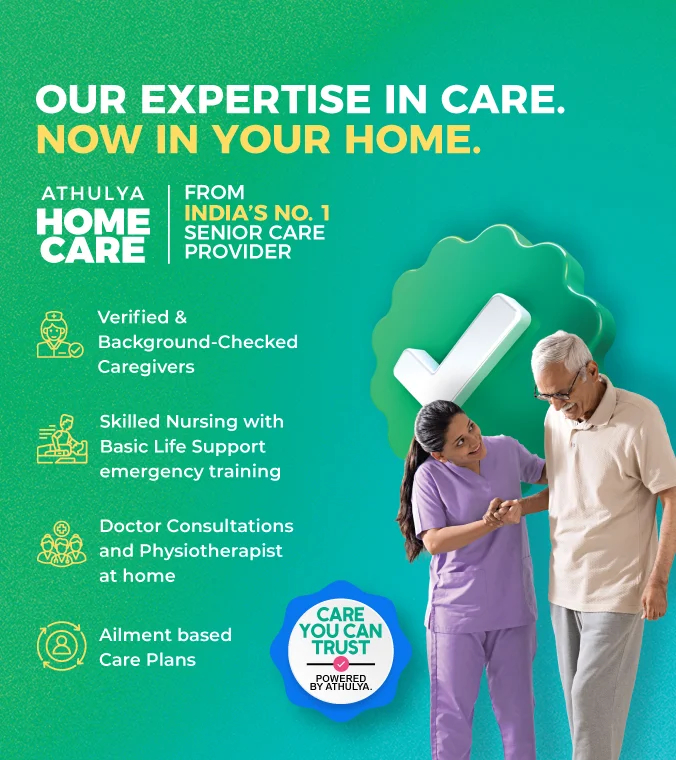

With its quintessential care approaches with a veneer of empathy and compassion, Athulya Home Healthcare is upscaling the quality standards of elderly care services in India. Simplifying the way seniors receive quality care, Athulya offers doctor visits, nursing care, physiotherapy, rehabilitation, sample collection, medicine delivery, and many other services exclusively for seniors at the comfort of their homes.
We are inspired by the power of healing at home. The patient care services offered in Chennai, Bangalore and Cochin by Athulya are widely recommended by healthcare professionals for a speedy recovery.
Having touched the lives of 30000+ seniors, our home healthcare services are much revered among the senior community in Chennai, Bangalore and Cochin.
Athulya Home Healthcare brings healing to your home, exclusively for seniors. Get in touch today for overall senior care.
Or Call Us 98846 39400
Senior Care Services

Athulya Home Healthcare offers medical equipment for rental/purchase in Chennai, Bangalore and Cochin for care at home.
Seniors living with chronic medical conditions or recovering from an illness need special equipment at home.
Athulya offers comprehensive medical equipment and consumables delivery at home in Chennai, Bangalore and Cochin, exclusively for seniors.
For more information. Please complete this form.
This test takes a complete blood count to evaluate your overall health, detecting anemia, infections, and other infections and can identify diseases like bone marrow disorders, dehydration etc.
A thyroid test that detects the thyroid level. High levels of free thyroid levels indicate overactive thyroid and lower levels indicate underactive thyroid which are identified in this test.
The HbA1C (GLYCOSYLATED HAEMOGLOBIN) test measures the levels of blood sugar. Diabetic patients are advised to take this test regularly to manage their blood sugar levels.
Liver function test measures the different enzymes, proteins etc., produced by the liver. It can help diagnose and monitor liver diseases or damage and how well the liver functions.
Lipid profile is a complete cholesterol test that measures the positives and negatives in your cholesterol and triglycerides where it can detect the risk of cardiovascular diseases etc.
Electrolytes panel is a part of blood screening tests that measures the levels of sodium, potassium, chloride, and carbon dioxide and also monitors the effectiveness of a treatment.
Ammonia test measures the toxic buildup of ammonia levels in your blood and checks the function of your liver and helps identify symptoms due to high ammonia levels
This test measures the vitamin D levels in your blood, mainly taken for elders with Vitamin D deficiency like fatigue, weak muscles, digestive issues, and weight gain